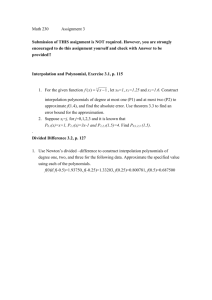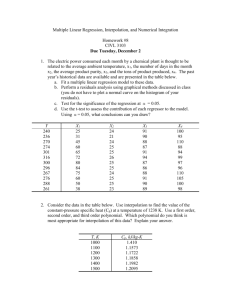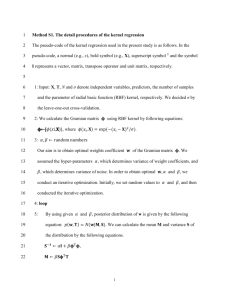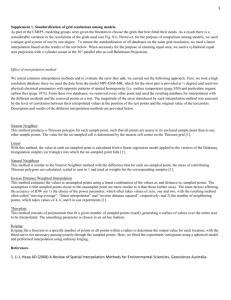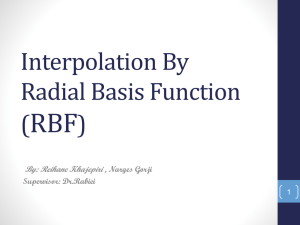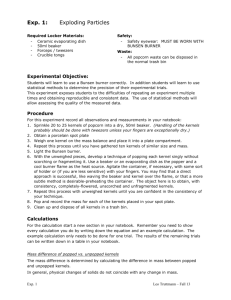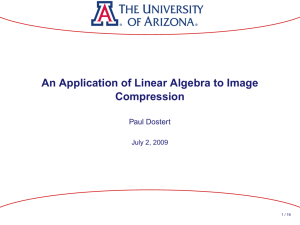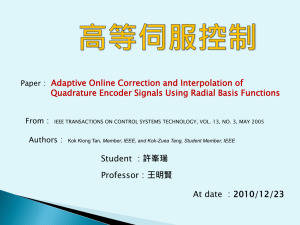Greg Fasshauer
advertisement
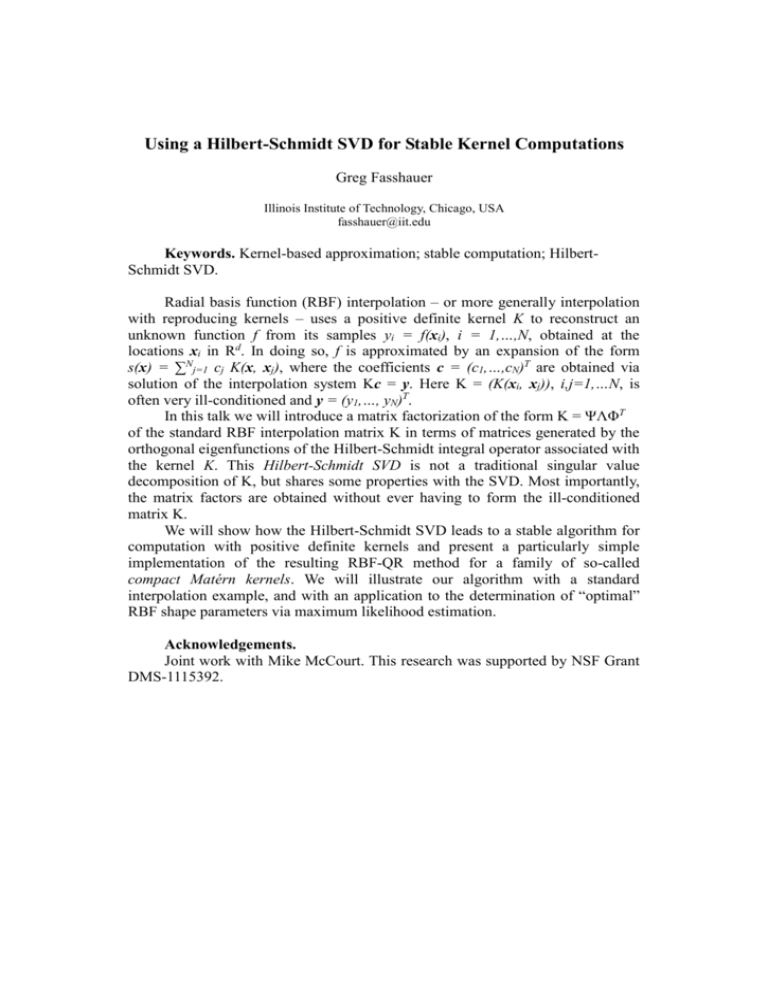
Using a Hilbert-Schmidt SVD for Stable Kernel Computations Greg Fasshauer Illinois Institute of Technology, Chicago, USA fasshauer@iit.edu Keywords. Kernel-based approximation; stable computation; HilbertSchmidt SVD. Radial basis function (RBF) interpolation – or more generally interpolation with reproducing kernels – uses a positive definite kernel K to reconstruct an unknown function f from its samples yi = f(xi), i = 1,…,N, obtained at the locations xi in Rd. In doing so, f is approximated by an expansion of the form s(x) = ∑Nj=1 cj K(x, xj), where the coefficients c = (c1,…,cN)T are obtained via solution of the interpolation system Kc = y. Here K = (K(xi, xj)), i,j=1,…N, is often very ill-conditioned and y = (y1,…, yN)T. In this talk we will introduce a matrix factorization of the form K = ΨΛΦT of the standard RBF interpolation matrix K in terms of matrices generated by the orthogonal eigenfunctions of the Hilbert-Schmidt integral operator associated with the kernel K. This Hilbert-Schmidt SVD is not a traditional singular value decomposition of K, but shares some properties with the SVD. Most importantly, the matrix factors are obtained without ever having to form the ill-conditioned matrix K. We will show how the Hilbert-Schmidt SVD leads to a stable algorithm for computation with positive definite kernels and present a particularly simple implementation of the resulting RBF-QR method for a family of so-called compact Matérn kernels. We will illustrate our algorithm with a standard interpolation example, and with an application to the determination of “optimal” RBF shape parameters via maximum likelihood estimation. Acknowledgements. Joint work with Mike McCourt. This research was supported by NSF Grant DMS-1115392.
